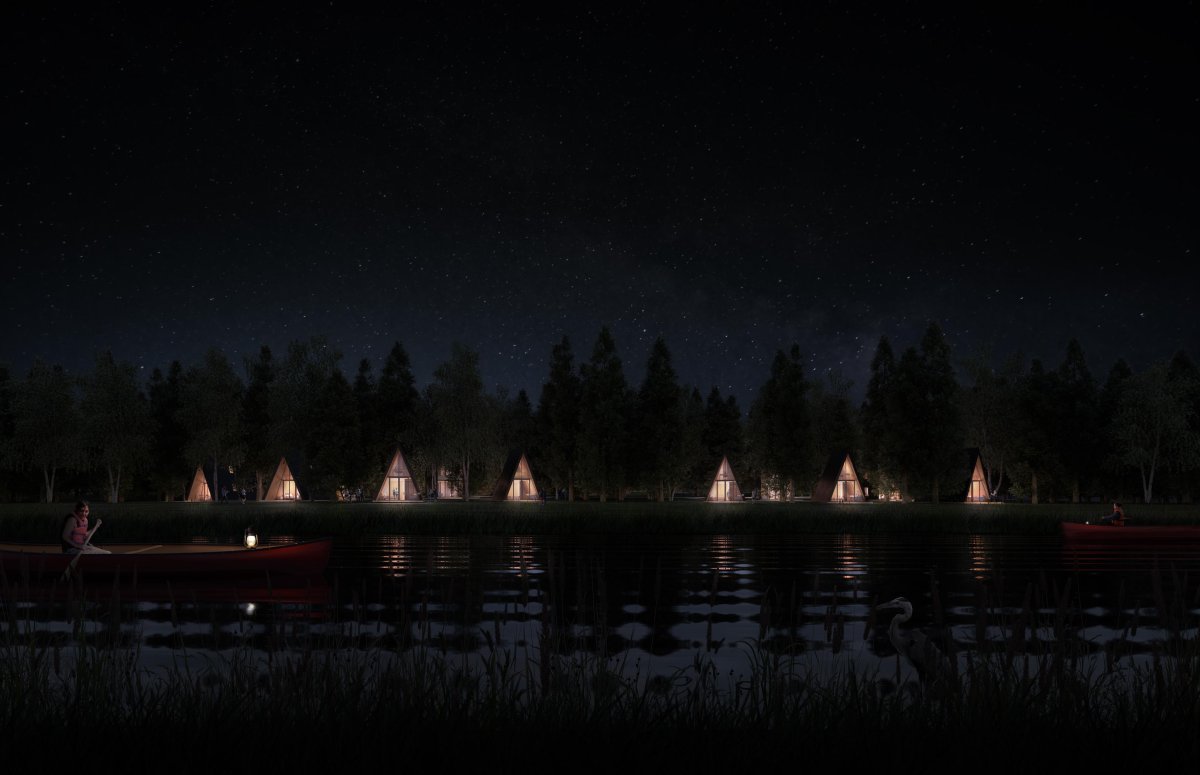The chief of First Nation said a donation of cabins are a great fit as they continue to deal with a housing crisis and the impact of the novel coronavirus pandemic.

Frank Roberts said the Montreal Lake Cree Nation approached the University of Saskatchewan (USask) back in March to help address an ongoing lack of housing.
“It kind of went in line with what’s going on with COVID-19, when it kind of hit Saskatchewan there in March,” he said.
“We have lots of band members that are transient and they move back and forth from Prince Albert, La Ronge, wherever it may be. We needed to find space for them so this was a great fit for them to have cabins.”
“There is a housing crisis right across Canada in all First Nations communities and we’re just one of those communities… especially with COVID-19 where some of our houses where we have at least between eight to 12 people in one house.”
Roberts said the 22 structures donated by USask range in size but a dozen cabins would mean homes for at least 36 to 40 people.
- Life in the forest: How Stanley Park’s longest resident survived a changing landscape
- ‘Love at first sight’: Snow leopard at Toronto Zoo pregnant for 1st time
- Buzz kill? Gen Z less interested in coffee than older Canadians, survey shows
- Carbon rebate labelling in bank deposits fuelling confusion, minister says
“In terms of people wanting houses, we have at least 140 people that are on the waiting list and there going to be waiting for ages,” he said.
“Now, with the demographics changing in our community, a lot of band members that are wanting in, it’s kind of a younger generation with a single-family, like a mom and dad and a child.”
While grateful for the USask’s donation, Roberts noted it costs between $8,000 to $15,000 per unit to have them relocated and hooked up the water and sewer.
At least a dozen of the buildings have already arrived on the First Nation from the USask’s shuttered Emma Lake Kenderdine Campus (ELKC) site in northern Saskatchewan.
“Those cabins were used to host visitors or whether that be from arts community, whether that would be for, if there was a revenue-paying customer or there was some activity on campus from the sciences as well,” Wade Epp, the associate vice-president of services at USask, said on Thursday.
Epp said USask wants to be the university the world needs.
“I hope this is one example where — whether it’s large or small — the university that we’ve been asked by a community group and I hope it’s part of our answer in being the university the world needs,” Epp said.
“I hope we’ve met some of that call in being able to work with this group and to be a strong community partner in Saskatchewan and within the Indigenous community.”
Montreal Lake Cree Nation has approximately 4,100 members with roughly half living on-reserve, according to Roberts. The First Nation is located approximately 245 kilometres north of Saskatoon.

Questions about COVID-19? Here are some things you need to know:
Symptoms can include fever, cough and difficulty breathing — very similar to a cold or flu. Some people can develop a more severe illness. People most at risk of this include older adults and people with severe chronic medical conditions like heart, lung or kidney disease. If you develop symptoms, contact public health authorities.
To prevent the virus from spreading, experts recommend frequent handwashing and coughing into your sleeve. They also recommend minimizing contact with others, staying home as much as possible and maintaining a distance of two metres from other people if you go out. In situations where you can’t keep a safe distance from others, public health officials recommend the use of a non-medical face mask or covering to prevent spreading the respiratory droplets that can carry the virus.
For full COVID-19 coverage from Global News, click here.



Comments